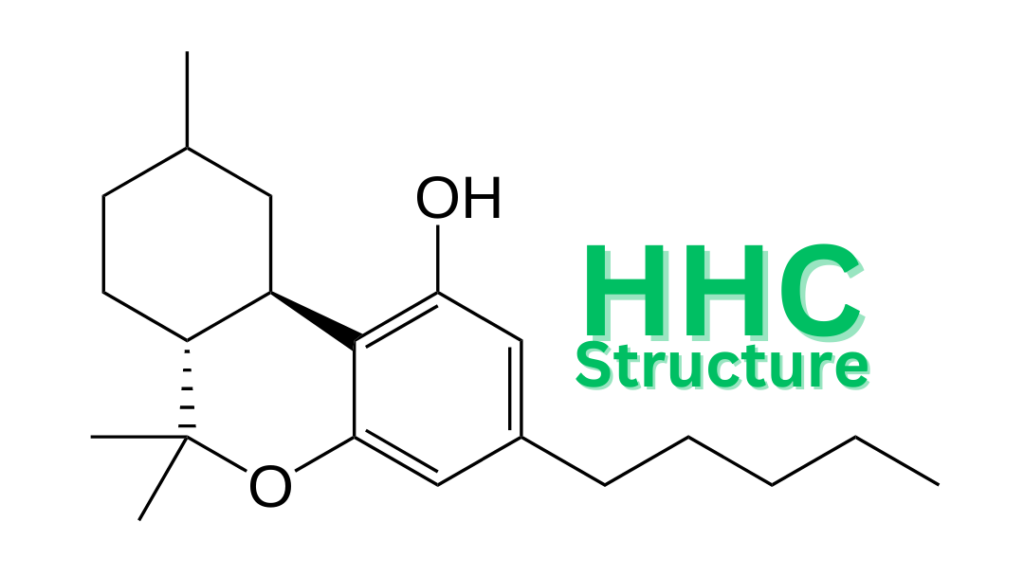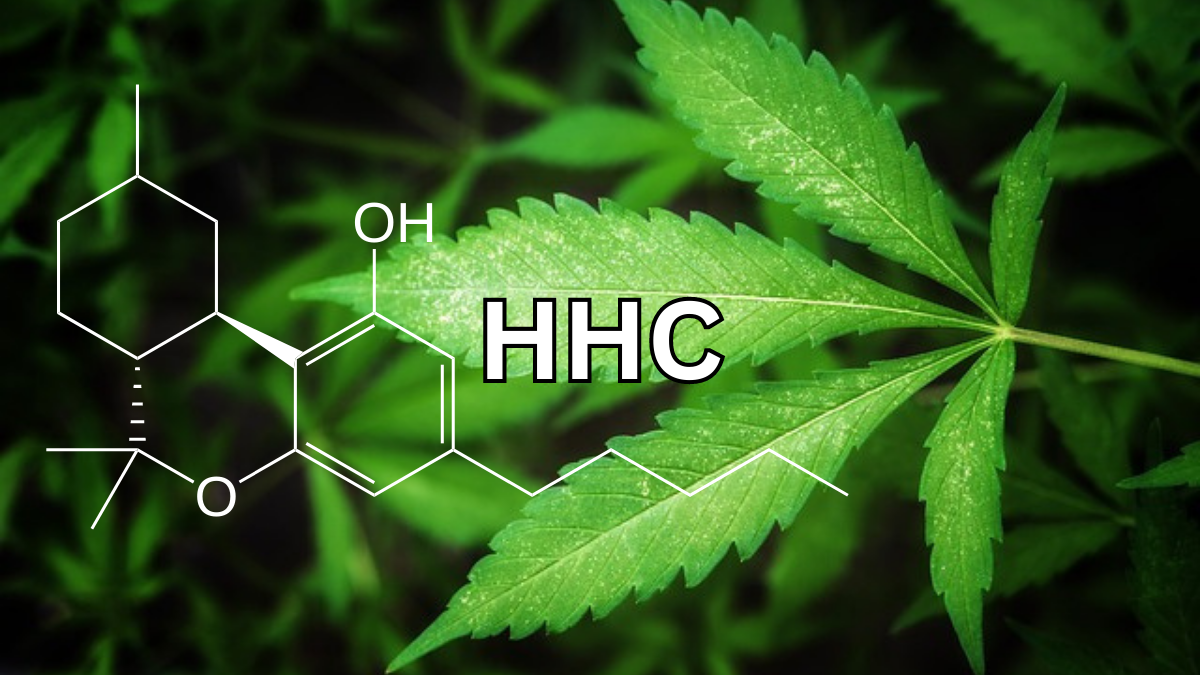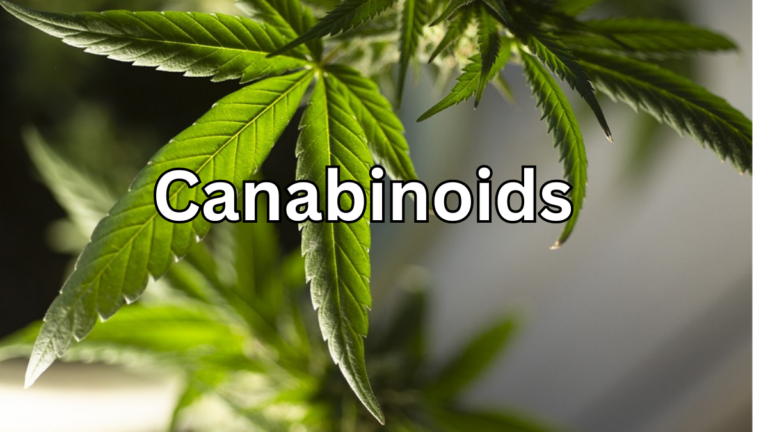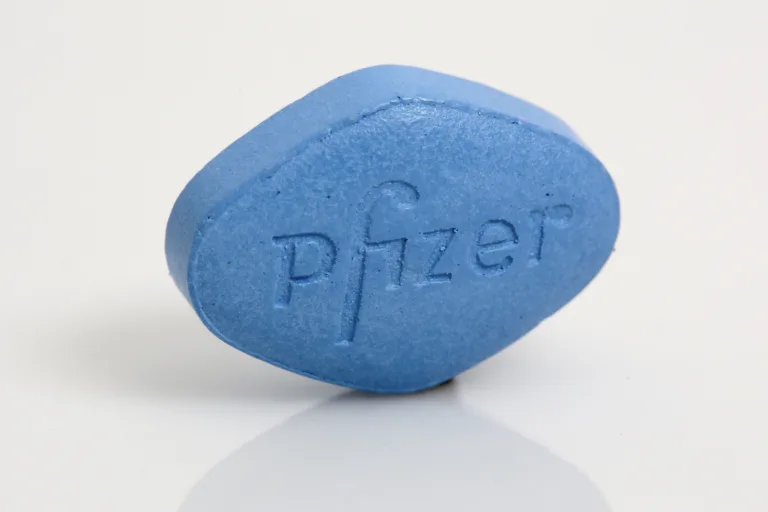Unlocking the Mystery of HHC: The good the bad and the Non-Psychoactive
Introduction
The world of cannabinoids has expanded rapidly over the past few years, with new compounds being discovered every day. One such compound is Hexahydrocannabinol, also known as HHC.
Despite its recent discovery, HHC has already gained significant attention due to its potential therapeutic benefits. However, there are many questions surrounding this compound, including whether it can make you high or not. So what are the HHC effects?
Explanation of HHC

HHC is a type of cannabinoid that is structurally similar to THC (tetrahydrocannabinol) and CBD (cannabidiol). Its chemical structure consists of six carbon rings and one hydroxyl group. It was first isolated from cannabis in 1949 but didn’t receive much attention until recently when it was discovered in high concentrations in some strains of hemp plants.
Unlike THC and CBD, which are two well-known psychoactive cannabinoids found in marijuana and hemp plants, HHC is considered a non-psychoactive cannabinoid. This means that it does not produce the same mind-altering effects as THC and does not cause intoxication or euphoria when consumed.
Clarification that HHC is not a psychoactive compound
It’s important to understand that just because HHC comes from the same family as THC and CBD doesn’t mean it has the same effects. As mentioned earlier, HHC is non-psychoactive. This means that consuming products containing this compound will not get you high or produce any mind-altering effects.
In fact, some research suggests that HHC may actually counteract the psychoactive effects of THC by binding to CB1 receptors in the brain. This makes it an especially attractive option for those who want to experience the therapeutic benefits of cannabis without feeling intoxicated.
Overview of the article
In this article, we will delve deeper into the world of HHC, exploring what it is, how it works in the body, and its potential therapeutic applications. We will also discuss whether HHC can get you high or not and look at the limited research on its safety and side effects. By the end of this article, you will have a better understanding of this exciting new compound and its potential uses in the world of medicine and wellness.
What is HHC?
HHC, also known as hexahydrocannabinol, is a lesser-known cannabinoid that has recently gained attention in the cannabis industry. It is a close cousin to delta-9-tetrahydrocannabinol (THC), the main psychoactive compound found in marijuana. However, HHC has a slightly different chemical structure and does not have the same psychoactive effects as THC.
Definition and Chemical Structure
HHC is a bicyclic cannabinoid that contains two rings in its chemical structure. It is similar to THC in that it interacts with the body’s endocannabinoid system to produce its effects. However, HHC has an additional hydrogen molecule on one of its carbon atoms, which gives it unique properties and effects.
The molecular formula for HHC is C21H34O2, and it has a molecular weight of 318.5 g/mol. Its melting point is around 130-135 °C and it can be extracted from cannabis plants or synthesized in a laboratory setting.
History and Discovery of HHC
Although HHC was first synthesized over 60 years ago, its potential therapeutic benefits have only recently been studied. It was discovered by Roger Adams at the University of Illinois in 1949 while researching THC and other cannabinoids found within cannabis plants. Despite being studied for several years after its discovery, research on HHC ceased until recently when researchers became interested in exploring its potential as a non-intoxicating alternative to THC.
Comparison to Other Cannabinoids
Compared to other cannabinoids such as THC or cannabidiol (CBD), very little research has been done on HHC. However, some studies suggest that it may have similar therapeutic benefits as CBD without causing any psychoactive effects. Additionally, recent research suggests that HHC may be more potent than THC in terms of its ability to bind to cannabinoid receptors.
This could mean that it has stronger therapeutic effects or fewer side effects compared to THC. Overall, HHC is a promising cannabinoid that is worth studying further to fully understand its potential therapeutic benefits.
How does HHC work?
HHC, or Hexahydrocannabinol, interacts with our body’s endocannabinoid system (ECS), which plays a vital role in regulating various physiological processes such as mood, appetite, and pain sensation. The ECS is composed of three main components: cannabinoid receptors (CB1 and CB2), endocannabinoids, and enzymes that break down these molecules after they have fulfilled their function. HHC acts as a partial agonist of the CB1 receptor in the brain, which means it binds to the receptor but only activates it partially compared to full agonists like THC.
This results in weaker psychoactive HHC effects than THC. HHC also has some affinity for the CB2 receptor found primarily in immune cells, suggesting potential anti-inflammatory properties.
Interaction with the endocannabinoid system
The interaction between HHC and the ECS could offer therapeutic potential through modulating its activity. For example, its partial activation of CB1 may be useful for treating anxiety or depression without producing intoxication associated with THC. Additionally, HHC may stimulate appetite or reduce nausea without causing a high in patients undergoing chemotherapy.
There is research support for its analgesic properties via an alternative route to cannabinoids that block nerve impulses by changing ion channel function rather than by binding to receptors as opioids do. This could give rise to a less addictive analgesic option.
Effects on the body
Like other cannabinoids, HHC may affect various physiological functions regulated by cannabinoids receptors beyond those described above including vasodilation (wider blood vessels) potentially reducing blood pressure and enhancing blood flow to tissues such as muscles where this can help recovery from exercise-induced damage. However due to limited research into this specific compound much of these proposed effects are theoretical and require further study before they can be confirmed.
HHC Benefits: Potential therapeutic uses
While preliminary, recent research suggests HHC has potential therapeutic benefits. It may have anti-inflammatory properties that could be helpful in treating autoimmune diseases such as rheumatoid arthritis or Crohn’s disease. HHC has also demonstrated potential efficacy as a treatment for anxiety and depression.
Due to its non-psychoactive nature, HHC could provide an alternative to traditional THC-based medications while offering similar therapeutic benefits without intoxication. However, further research is necessary to confirm these potential applications and establish safety profiles for clinical use.
What are the HHC effects? Will HHC get me high?
Explanation of psychoactive compounds
Psychoactive compounds are substances that can enter the brain and affect its function, leading to changes in perception, mood, or behavior. THC (tetrahydrocannabinol), for example, is the primary psychoactive component in cannabis.
CBD (cannabidiol), on the other hand, is considered non-psychoactive since it does not cause a noticeable high. It’s important to note that not all cannabinoids are psychoactive.
HHC (hexahydrocannabinol) is a structural analog of THC but has been found to be non-psychoactive. This means that it does not produce the euphoric effects associated with THC consumption and will likely have fewer adverse effects on cognitive function.
Comparison to THC and CBD
Compared to THC and CBD, HHC has a unique chemical structure that affects its interaction with cannabinoid receptors in the human body. While both THC and HHC have similar chemical structures, HHC has an additional ring structure which makes it less potent than THC when binding to cannabinoid receptors.
CBD, on the other hand, may influence endocannabinoid activity by interacting with enzymes responsible for breaking down endogenous cannabinoids such as anandamide. While this mechanism differs from how HHC interacts with cannabinoid receptors directly.
Evidence supporting non-psychoactivity
Several studies have investigated the potential psychoactivity of HHC compared to traditional cannabis products containing substantial amounts of THC. In one study conducted by Cannabis Science & Technology magazine, researchers analyzed cannabis samples for their levels of various cannabinoids including HHC. The results showed that while samples containing high levels of THC produced significant euphoric effects on users; those containing significant amounts of HHC did not produce any noticeable effects indicative of a psychoactive response.
This supports the idea that HHC is likely non-psychoactive and may not produce the same adverse effects as THC consumption. Overall, while THC remains the primary psychoactive component in cannabis; newer compounds such as HHC are emerging as potential alternatives to traditional cannabis products for those concerned about avoiding psychoactivity or seeking therapeutic benefits with fewer adverse effects.
Possible Side Effects and Risks
While HHC is a non-psychoactive compound, it doesn’t mean that it’s completely without risks or side effects. Currently, there is limited research on HHC, which means that the full extent of its effects on the body – both positive and negative – are not yet known.
Some possible side effects of using HHC include dizziness, dry mouth, and changes in appetite. Another potential risk associated with consuming HHC is its interaction with other medications or supplements someone might be taking.
Since little is known about how HHC affects the body overall, it’s possible that there could be negative interactions with other substances. It’s important for anyone considering using HHC to speak with a healthcare professional first to determine whether it’s safe for them to do so.
Is HHC safe? Limited Research on Safety
One factor that makes it difficult to determine the safety of HHC is the lack of research currently available. While some studies have been conducted on the compound, these are still limited in number and scope. This makes it challenging to fully understand how HHC interacts with the body over time, as well as any potential long-term risks associated with consistent use.
Despite this lack of information, many people continue to experiment with and use products containing HHC. It’s important for individuals who choose to do so to be aware of any potential risks involved and take steps to mitigate them as much as possible.
HHC Negative Effects: Potential Adverse Effects on the Body
As previously mentioned, there is still much unknown about how exactly HHC interacts with human physiology over time. However, some researchers have raised concerns about potential adverse effects associated with consistent or high-dose use of this compound.
One such concern has been raised regarding liver toxicity; some studies have suggested that high doses of certain cannabinoids (such as CBD) can lead to liver damage in mice. While it’s unclear whether this same effect would be present in humans using HHC, it’s still something to consider when weighing the potential risks of using this compound.
Precautions for Use
Due to the lack of research and understanding around HHC, there are currently no established guidelines for safe use of this compound. However, there are some general precautions that anyone considering using HHC should keep in mind. Firstly, it’s important to purchase products from reputable sources that have been independently tested for purity and potency.
This can help minimize the risk of any unexpected side effects or interactions with other substances. It’s also a good idea to start with a low dose of HHC and gradually increase over time as needed.
This can help individuals gauge their body’s response and avoid any negative effects associated with high doses. Ultimately, anyone considering the use of HHC should do so with caution and under the guidance of a healthcare professional if possible.
Conclusion
After reviewing the available research, it is clear that HHC has potential therapeutic benefits and does not produce psychoactive effects like THC. While the limited safety data suggests caution should be taken with use, this cannabinoid could prove to be a valuable tool in treating various conditions.
Summary of Key Points
HHC is a non-psychoactive cannabinoid that interacts with the endocannabinoid system to produce potential therapeutic effects on the body. It differs from other cannabinoids like THC and CBD because it lacks psychoactivity but has similar chemical properties. There is limited research on safety and potential side effects, so caution should be taken when using this compound.
Future Research Possibilities for HHC
As knowledge of the endocannabinoid system and different cannabinoids continues to expand, there are many avenues for future exploration of HHC’s potential therapeutic benefits. One area ripe for investigation is its anti-inflammatory properties and how they may help treat conditions like arthritis or asthma. Further studies should also explore its effectiveness in treating mood disorders such as anxiety or depression.
Additionally, as HHC becomes more widely known, scientists can begin testing different doses and administration methods to optimize its efficacy. Overall, while there is much still unknown about this compound, HHC offers exciting possibilities for future cannabinoid research and could provide novel treatment options for a range of conditions.
Thank you for reading this far. If you would like to know more about other cannabinoids, check out this blog post here.



